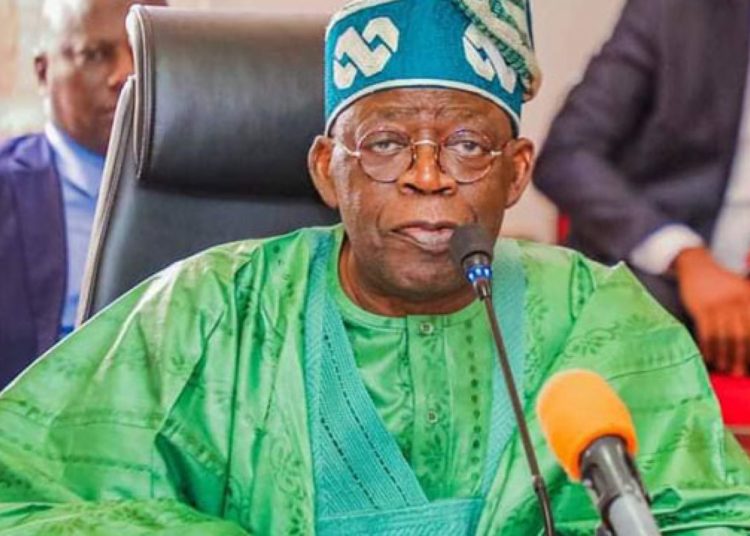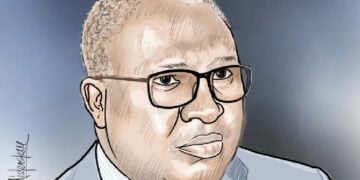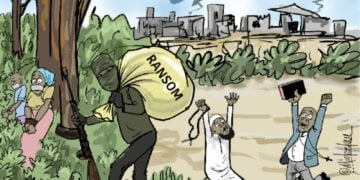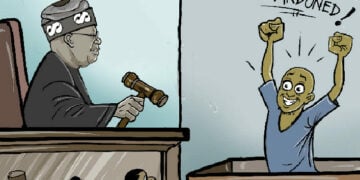The late Dr Yusufu Bala Usman’s “Manipulation of Religion in Nigeria, 1977-1987” is a book that contains very revealing analyses of the specific ways in which various groups within the Nigerians political class have continued to manipulate inherent religious sentiments of the people in their bid to capture or retain power. It was with an exceptional erudition that Usman, who was a famous lecturer of History in Ahmadu Bello University Zaria and whose arguments were products of rare intellectualism, exposed not only the sinister motives of the religious manipulators but also the consequences or effects of their actions on Nigeria.
As a respected academic, he was, moreover, a great influencer of thoughts whose radicalism was both a source of inspiration for a lot of young minds and a reason for a noticeable discomfort among the reactionary and conservative elements and groups. His persistent attempt to uncover the divisive plans of the power-seekers tremendously helped to show the extent to which certain identities, with religion as the biggest of them all, served as tools for the disintegration of the society which they politicians freely used at that time.
Although the book covers only ten years (1977—1987), mainly for the purpose of convenience, the issues it contains are still as relevant to the proper understanding of the political developments in the country as they had ever been, thereby making the concern over them to continue to grow. By stating, in the introductory part of the book, that basic issues about the “increasingly violent political campaigns built around religious differences in this country today, can only be fully understood when seen within the larger context of what has been happening to Nigeria,” Dr Usman pointed to a particular situation that not only prevailed within the period under reference, but which would and has, in fact, become the most dominant feature of the Nigerian politics.
Even with the claim that politics and democracy have already become entrenched and institutionalized processes to which almost the entire citizenry has fully subscribed, the manipulation of the religious and other sentiments of the people for the purpose of the attainment of political objectives continues. The manner in which political parties or, more precisely, individual power-seekers deploy religion as an instrument of campaign, which is a clear negation of the tenets of democracy, shows that the politicians’ tendency for the religious manipulation of the people is now much stronger.
At the national level and such other states or constituencies where the religious division among the people is already clear, politicians easily conspire with religious leaders to ensure that simple differences degenerate into extreme hostility between adherents of Islam and Christianity. All other factors like competence, patriotism and readiness for service delivery that should ideally always guide the people towards the choice of leaders are relegated to the background as a result of which the quality of both leadership and representation has continued to drop.
The on-going same-faith ticket controversy ahead of the 2023 General Elections is an indication that religion continuously gains recognition as a significant factor in the design and implementation of strategies towards elections. Although it is somehow peculiar to the All Progressives Congress (APC), considering the adoption of the formula in Kaduna State and even at the national level by the party, the same-faith ticket is now, arguably, the most burning issue in the whole country.
It is, in fact, a strategy that has been subjected to a hot debate with each of the contending groups making submissions that are clearly in sharp conflict with the views of the other ones. In the process of the arguments the religious sentiments of the feuding groups or communities are further re-enforced and pushed to the point of intolerance.
However, it is continuously clarified that a ticket for political contest, as long as it meets the requirements of the law, whether it is Muslim-Muslim, Christian-Christian, Muslim-Christian or Christian-Muslim, is valid. The laws of the land are completely blind to the religious persuasion of any candidate(s); a fact on which some of the proponents of the same-faith ticket have continued to build their own argument.
It is, therefore, on the basis of this incontrovertible fact that a lot of people are genuinely surprised, nay disappointed that such an otherwise simple issue that is purely for the candidates and the political parties to handle has become a source of deepening friction between individual adherents of the two faiths and the religious bodies. The confrontational posture that has been adopted by such individuals and bodies, as unnecessary as they appear, are still a source of grave concern for all those Nigerians who worry about peaceful co-existence under democracy.
But the opponents of the formula, even without clear constitutional provisions that are favourable to their position, are openly relying on the morality factor and, of course, the absolute need for political cohesion which naturally translates into national stability as the reasons for their opposition against the same-faith ticket. Some of the results of the interrogation of the motive behind the adoption of the formula which have already indicated a desire of the politicians to continue to manipulate the religious sentiments of the citizens, with all the dangers such an approach portends for the country, are equally a factor that makes the complaints over the APC’s choice of the same-faith ticket option to thicken.
The justification for the fears over the foreseen ugly consequences of the party’s action has, somehow, been found in the harsh reactions of, for example, the Christian Association of Nigeria, Middle Belt Forum and the rest of them. They are reactions that have so far seemed to have dashed the hope for the prevalence of mutual trust between Muslims and Christians in, particularly, the Northern part of Nigeria.
It is also a strategy that can cost the APC some electoral fortunes as even in Kaduna State where its experimentation turned out to be a success, the failure of the same-faith ticket to serve the basic interests of even those segments of the populace in the State that supported its adoption is a full game-changer. This means that the calculations that worked for the party in the State in 2019 are longer reliable.
The same-faith ticket is therefore only a political strategy, but not the kind of which takes care of the sensitivity of Nigerians to their most fundamental identity (religion) or indicates intention to guarantee justice and fairness in the course of governance. It is this fear and all the reactions that it has begun to generate that will effectively feed the prevailing religious mistrust among Nigerians.
This is the kind of situation that is usually created by the manipulation of religion, which has unfortunately become the trademark of most Nigerian politicians. Religions are, for them, not ways of life as decreed by our Creator, but only some instruments for the pursuit and acquisition of power, which they easily abuse.
.





